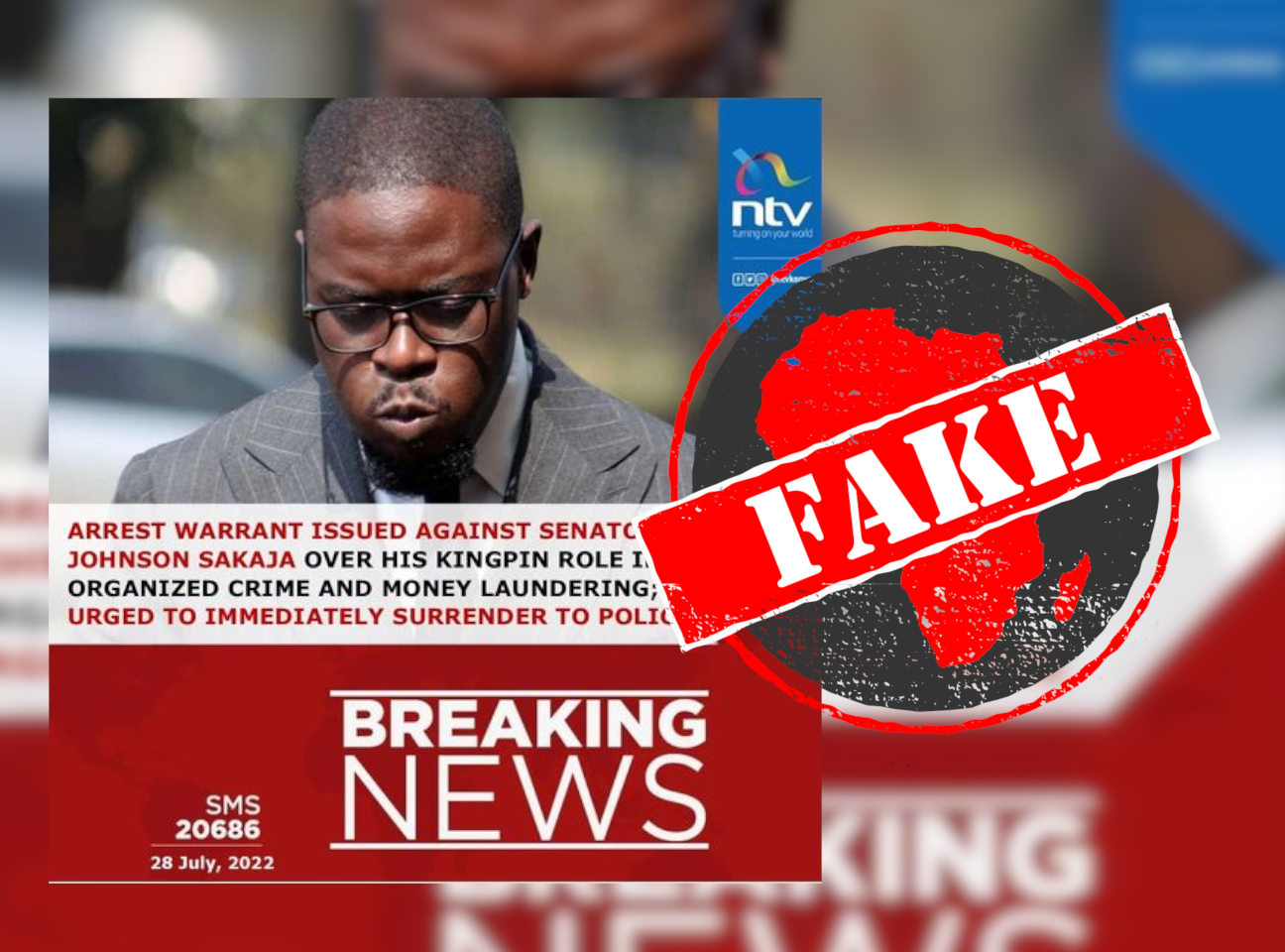“ARREST WARRANT ISSUED AGAINST SENATOR JOHNSON SAKAJA OVER HIS KINGPIN ROLE IN ORGANIZED CRIME AND MONEY LAUNDERING; URGED TO IMMEDIATELY SURRENDER TO POLICE,” reads a “breaking news” graphic circulating on Facebook since late July 2022.
The graphic has the logo of NTV Kenya, a popular TV channel.
Johnson Sakaja is the senator for the county of Nairobi, the country’s capital. He is running for the county’s governorship under the United Democratic Alliance (UDA) ticket in Kenya’s 9 August elections.
The UDA, led by current deputy president and presidential candidate William Ruto, is part of the Kenya Kwanza coalition.
Sakaja will face businessperson and politician Polycarp Igathe from the Jubilee Party. The party is part of the Azimio la Umoja One Kenya coalition headed by Orange Democratic Movement leader – and Ruto’s main rival for the presidency – Raila Odinga.
The graphic has been posted here, here, here, here, here and here. But is it legit? We checked.

Disinformation ahead of elections
Kenya’s Directorate of Criminal Investigations frequently posts updates on major arrests – including of politicians – on its verified Facebook and Twitter pages. But Africa Check did not find any news on Sakaja’s arrest on either page.
We searched for the graphic on NTV Kenya’s Facebook page and again came up empty.
On 2 August 2022, NTV Kenya posted the graphic on Facebook, stamped “fake”.
“Beware of fake news! If it is not on our official social media pages, it is fake,” it posted.
Kenya’s 2022 elections are less than a week away. False claims about candidates can harm voters’ ability to make informed choices.
Republish our content for free
For publishers: what to do if your post is rated false
A fact-checker has rated your Facebook or Instagram post as “false”, “altered”, “partly false” or “missing context”. This could have serious consequences. What do you do?
Click on our guide for the steps you should follow.
Publishers guideAfrica Check teams up with Facebook
Africa Check is a partner in Meta's third-party fact-checking programme to help stop the spread of false information on social media.
The content we rate as “false” will be downgraded on Facebook and Instagram. This means fewer people will see it.
You can also help identify false information on Facebook. This guide explains how.


Add new comment